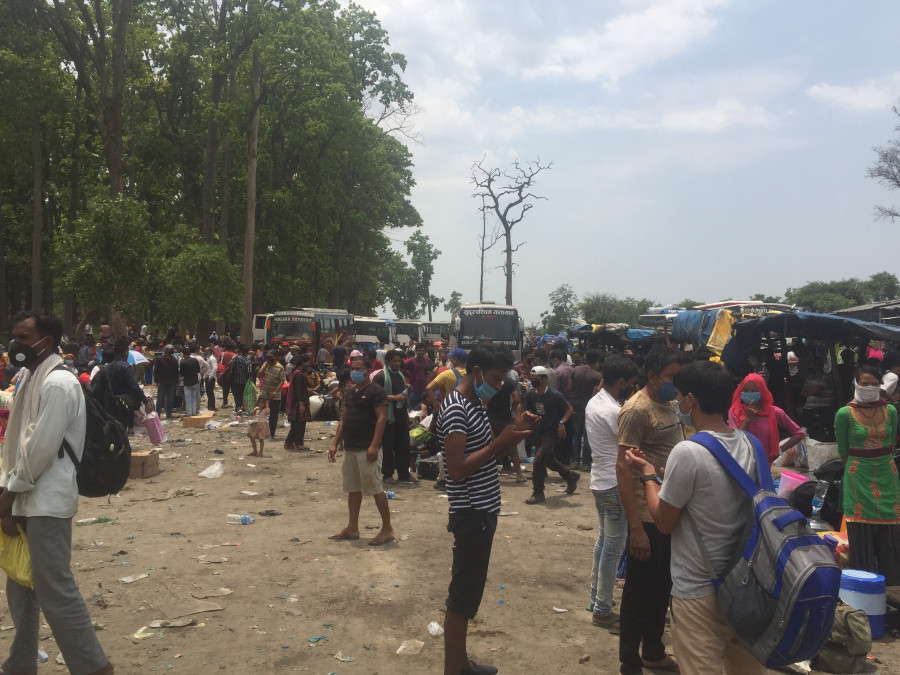Sudurpaschim Province
Massive influx of returnees in Sudurpaschim risks community spread
An overwhelming number of returnees, poor testing rate, and unmanaged quarantine facilities may cause a rampant community spread of the coronavirus, experts warn.
Mohan Budhaair & Bhawani Bhatta
Over 56,000 Nepalis have returned from India via two major border points in Sudurpaschim Province—Gauriphanta in Kailali and Gaddachauki in Kanchanpur—in the second half of May. Over 40,000 people entered the country from the Gauriphanta border point alone. And the number of returnees is expected to see a steady increase in the coming days. According to Shiva Raj Joshi, information officer at Kailali’s District Administration Office, an average of 4,000 Nepalis are returning to the province every day.
Joshi said the massive influx of returnees in the past week has been hard to deal with.
“It’s difficult to send the increasing number of returnees to their respective local units. And the number is only beginning to surge,” he said.
The influx has made the quarantine facilities across the province reach their full capacity, with over 36,500 people quarantined as of Saturday evening. The local units, however, have failed to maintain the standard set by the government for quarantine facilities, said Gunaraj Awasthi, provincial health director. “The facilities are stretched beyond their limit now and it’s getting increasingly difficult to manage all the quarantined people,” he said. “This means there is more risk of the virus spreading. The local units should send the returnees to home-quarantine.”
The province has a total of 1,119 quarantine facilities across its 88 local units.
Insufficient number of quarantine facilities coupled with a scarcity of testing kits increase the risk of Covid-19 outbreak further, Awasthi added.
“Only those who show symptoms are being tested,” Joshi said. A significant number of those carrying the novel coronavirus are asymptomatic and can spread the disease.
“The lack of prompt testing leads to an increase in the number of people in quarantine, risking rampant community spread as well,” said Awasthi.
The province has so far tested 5,536 swab samples through the PCR method. Twenty-five have registered positive as of Sunday. The province has conducted 21,820 tests via RDT kits, the use of which have been questioned for their inconsistent and unreliable nature.
“Poor testing rate, mismanaged quarantine centres, and massive influx of returnees may all come together to cause a rampant community spread of the virus,” Awasthi said.




 18.12°C Kathmandu
18.12°C Kathmandu
















